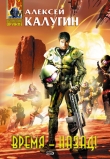
Текст книги "The Long Mars"
Автор книги: Terence David John Pratchett
Соавторы: Stephen Baxter
Жанры:
Научная фантастика
,сообщить о нарушении
Текущая страница: 22 (всего у книги 25 страниц)
41
IT WAS THE end of August, and the return of the Navy airships USS Neil A. Armstrong II and USS Eugene A. Cernan from their expedition into the remote Western reaches of the Long Earth, that precipitated the crisis for the Next children in their prison-hospital at Hawaii. Because Captain Maggie Kauffman and her crew brought home the ‘Napoleons’ who had destroyed the Armstrong I. Monsters who were immediately identified as Next.
Nelson suspected it was simply the image of the rogues’ leader, who called himself only David, that did the most damage to the cause of the Next. This was not some institutionalized, broken child, like Paul Spencer Wagoner and the rest. David was an adult, tall, arrogant, commanding, defiant as he stared out of the cage into which his captors put him, gazed into the lenses of the news cameras. A Napoleon indeed, a daunting superman.
Around David and his kind, inchoate fears crystallized. Something had to be done about the Next. The question was, what?
A conference call was hastily set up, involving senior staff at the Pearl Harbor base as well as administration officials in such secure locations as had survived across the post-Yellowstone continental US. On Hawaii, the meeting was projected in a complicated hologrammatic conference room, an expensive piece of kit.
It seemed inevitable to Nelson that even in the mid twenty-first century, even after the huge dislocation of the last few decades, most of the delegates were white, middle-aged men.
Nelson himself wasn’t allowed to contribute unless specifically invited in the course of the discussion, but he was allowed to watch from a glass-walled booth. To his surprise he found himself sharing the booth with Roberta Golding, who he knew had come to Hawaii supposedly on her own fact-finding mission. He had met her in person once before, at a party thrown by Lobsang just before the Yellowstone eruption. But they had not spoken then; she had been very young. Now she had played a part in arranging his own cover here. He supposed it was coincidental that Roberta was here in person when the Armstrong crisis blew up. But then he reminded himself that Golding herself was from Happy Landings . . . Maybe it was no coincidence at all. Secrets colliding with secrets. What was her true role? How much did she believe he knew of all this?
As they took their seats Nelson introduced himself; Roberta responded coolly, but pleasantly enough.
‘Quite a set-up,’ Roberta said, as they watched the conference delegates file in, or coalesce from clouds of pixels.
‘Yes. I imagined you’d be in there with them.’
‘Oh, this is far above my pay grade. And it’s mostly military, you’ll notice. The President’s Science Adviser is chairing the session, and she’s one of the few not in uniform.’
‘Indeed. Reminds me of nothing so much as a Cold War military bunker. Oh, sorry.’ Golding was only around twenty years old herself – only a little older than Paul Spencer Wagoner, he reflected. ‘Maybe that’s too dated a reference for you.’
‘No, no. I have studied the period. Perhaps the most perilous of all manifestations of dim-bulb madness.’
Her obviously deliberate use of the Next term ‘dim-bulb’ startled him, and he looked at her with his perceptions of her shifting rapidly.
The Science Adviser called the meeting to order. She announced that the group had been convened by President Cowley as a ‘Special Contingency Task Group’, in response to the evidence returned by the crews of the Armstrong and Cernan, and other data relating to the Next, including the study of the internees here at Hawaii. The objective of the session was to make recommendations to the administration concerning next steps.
Admiral Hiram Davidson, chief of USLONGCOM, was head of the chain of command that had controlled the mission of those Navy ships, and he spoke first, giving a brief rehash of what Captain Kauffman and her crew had found out there in the reaches of the Long Earth, and what they’d done about the ‘ragged-trousered Hitlers’, as he put it, that they’d shipped home. ‘As to what’s going on in this base right here, for a summary of that I want to bring in Lieutenant Louise Irwin . . .’
Irwin spoke well, concisely, intelligently, even with a degree of compassion. She briefed the delegates on what had been learned of the Next in the time they’d been under surveillance in this controlled facility, and – as she reported more cautiously, under pressure of follow-up questioning – what had been surmised of their potential. Apparently unawed by the stuffed shirts around her, she neither condemned nor supported the Next; rather she gave a cool assessment of their intellect, their psychology, their capabilities. Even so, Nelson thought – or perhaps because of her analytical tone – she made the Next children sound pretty scary.
Roberta murmured, ‘I’ve spoken with Irwin a few times. The inmates here have been lucky to have her around.’
‘I’d second that,’ Nelson said.
‘Anyhow, so much for the background briefings. Now the debate begins . . .’
Somewhat to Nelson’s surprise, the next speaker, the head of DARPA, an advanced research agency responsible to the Department of Defense, spoke quite passionately in favour of protecting the Next. He was a stout, red-faced man, a classic desk-jockey type; his rather visionary words didn’t fit his image, Nelson thought, as he began to speak.
‘Before we convened I consulted some colleagues here, including representatives of the National Science Foundation, NASA, and also some members of the President’s Science Advisory Committee.’ DARPA nodded to other wise heads present. ‘And we all agree there are potentially great scientific benefits to be derived from this situation. If there is some kind of speciation event going on here – and that very much remains to be demonstrated – well, consider how much we might learn of humanity, our common genetic heritage, the nature of natural selection.
‘And if these “Next” individuals do indeed have intellectual capacities considerably above the norm, then who knows what we might learn from them directly? I don’t just mean new technologies and so forth, advanced mathematical techniques maybe . . . I mean ideas. Remember, even human history shows that what may seem an “obvious” discovery to one culture may bypass another altogether, such as the discovery of writing, or the use of the wheel. As an example, think about this. With open mind and simple but systematic observations of the natural world, one of the ancient Greeks or Romans, Pliny for example, could easily have come upon the theory of natural selection – a simple but brilliant idea. Instead we had to wait two millennia for Darwin and Wallace. Who knows what progress we might have made if Pliny had got there first? And who knows what other obvious-in-hindsight notions we have missed?’
A representative of the Department of Defense grunted at that. ‘Pliny? Who the hell was he? I always said you guys in DARPA are a waste of money. Listen, I’ll tell you the only thing we’ll learn from these screwed-up wiseacres, if we give them a chance. And that’s how to serve them.’
A CIA chief responded, ‘Well, that’s not necessarily true, General. Not if we can control them. Imagine the defence applications of super-brains.’
‘If we can control them.’
‘Granted,’ said CIA. ‘And there are options to achieve that. They’ve already been chipped. I mean, implanted with trackers.’
Nelson stiffened; he hadn’t known that, and he was sure the inmates hadn’t known either.
DoD grinned. ‘Ought to implant them with weaponized chips. That’s the way to control them.’
CIA looked faintly disgusted. Then he went on, ‘But we need to think of the wider picture. This is an issue for humanity, not just America. The Chinese are going to have their own “Next” too. The Russians. The rising nations of the equatorial belt on the Datum. We need our Next to counter theirs.’
The DoD laughed out loud. ‘So what are we getting into, an arms race of the Brainiacs?’
The Science Adviser intervened. ‘We seem to persist in describing these young people as a danger, a threat. Is that necessarily so?’
That generated a buzz of conversation. On the anti-Next side, delegates pointed to their private, non-decipherable languages. The fact that they had already been making money by producing investment-analysis algorithms that defied existing market safeguards. The fact that they looked like us, that they were an insidious, insider threat, cuckoos in the nest, like an alien invasion from within our own DNA . . .
And then there was the inarguable fact that a handful of young, unarmed, untrained Next had been able to bamboozle experienced Navy officers, capture a twain, and slaughter many of its crew and abandon the survivors. That incident proved that these Next could be a real and present danger, the military officers argued. There had even been some incidents on Hawaii, attempts at manipulation by the imprisoned children here. Some of the marine guards had had to be rotated; others were in counselling. ‘Real Hannibal Lecter stuff,’ said DoD.
Protests to counter that perception, such as the assertion from the Homelands Security representative that individuals later proven to have Next characteristics had quietly, unannounced, done heroic work in helping the post-Yellowstone rescue and recovery efforts, sounded feeble in comparison.
Nelson felt increasingly uncomfortable as he listened. ‘I don’t like the subtext to all this. What’s been said beneath the words: they aren’t like us, and that’s why we need to destroy them. That’s what they’re really saying. My own background—’
‘South African,’ Roberta murmured. ‘I know. You are sensitive to such undertones. And you are right to be. America, indeed mankind, has undergone revolutions of the spirit in the last generation, from the discovery of the Long Earth to Yellowstone – and now this. People retreat to default positions in such circumstances. Protect what they have.’
‘“People.” Dim-bulbs, you mean?’
She didn’t respond to that. ‘Within the administration itself there has been a kind of emotional coup. Everybody knows that it was the undercurrent of resentment against steppers cresting in the Humanity First movement that gave President Cowley his power base in the first place.’
‘It seems to me Cowley himself has grown beyond that. He reaches for the centre ground. He wouldn’t have got re-elected otherwise.’
‘True. But behind the scenes, some of the President’s closest aides and advisers from those days are still around. Perhaps the stain lingers even in the President’s own soul. And that darkness has come to the fore, in this different context, under the pressure of events. There is a gathering mood to do something. To strike. It is nothing to do, really, with questions of national security, and still less the survival of the species. Such a policy is believed to accord with the perceived public mood. And perhaps it does. People need scapegoats. Ah, the conference may be coming to its conclusion . . .’
The President’s Science Adviser summed up the position, the options, and the mood in the room. ‘This place “Happy Landings”. This is the source, you say?’
‘The nest,’ growled the CIA. ‘The genetics confirms it.’
‘One source,’ said the FBI. ‘No doubt there are others. But many genetic linkages trace back to Happy Landings. Right now it is a primary hub.’
‘OK.’ The Adviser turned to Davidson. ‘And our relevant assets, Hiram? USLONGCOM is your domain.’
‘The Armstrong II and Cernan are the best ships we got. They can be out there in days.’
The DoD grunted. ‘Those ships carry some serious weaponry; we made sure of that before they went off into the dark. Admiral, just make sure your troll-lover Captain Kauffman is forced to ship out Ed Cutler too. Then we might have a serious card to play . . .’
Nelson said, ‘What kind of weaponry? . . . Good Lord. They’re actually considering a military response, aren’t they?’
Roberta said evenly, ‘The conclusion is as I anticipated. The game is nearly played out.’
‘And what of the inmates here? What will be done with them? Nothing good, I imagine. Certainly they will never be freed.’
She turned to him, her face serious, intent. ‘They are young, you know. For all their arrogance, their difficulty. I am like them – I know you see it.’
He did see it now. He thought that she must need iron self-control to keep up camouflaging behaviour in the high-intensity hothouse of Madison West 5, the new DC.
‘I was once enough like them to understand. How it is to be different, how it is to be surrounded by blank faces and empty heads, to know there is nobody you can talk to, no parent, no teacher, no way you can empty your head of the insights rattling inside it. And to be frightened, almost all the time.’
‘Frightened?’
‘The Next can read people, remember, with an acuity you dim-bulbs lack. They look at an adult and it is as if they are reading that person’s mind. They can clearly see the indifference, the malevolence, the lust, the calculation, behind the smile. All this is very visible even to the smallest, most helpless child. We see the world clearly. We have no illusions,’ said Roberta bleakly. ‘We are too intelligent to be comforted by any of your stories, your gods and heavens.’
Nelson considered. ‘Once I saw Paul crying in the night. This was from the viewing walkway. I did not disturb him.’
‘I used to cry at night too.’
He considered that. ‘Do you call yourself Next, then?’
She smiled. ‘Labels like that are for youngsters. As if we’re comic superheroes. I don’t fret about labels. And I am – different. I am less developed than some others here, but, having been raised in human society for most of my life – and with good teachers – I have decided my best place is here, out in the human world, serving as a sort of – interface.’
He smiled. ‘One hell of an interface if you’re in the White House itself.’
‘I try. But my maternal grandmother was a Spencer too. I have deeper loyalties; it’s my family being discussed here. I can find ways to get the inmates out of here.’ She faced him. ‘Will you help?’
‘Of course I will help. It’s why I came.’
‘What must we do?’
Nelson thought of Lobsang, and Joshua Valienté – and what he knew of Joshua’s friend Sally Linsay, and her facility with soft places . . . ‘There are ways.’
The meeting had come to its conclusion. The delegates stood up, mingled, those in the same geographical locations shaking hands. Then, one by one, their hologram representations winked out of existence.
42
NELSON AZIKIWE CONTACTED Joshua, and Joshua contacted Sally, fresh back from the Long Mars via the Gap. And together they worked out a soft-place escape route from the Hawaii facility.
Joshua and Sally were smuggled into the base, and they started stepping out the Next inmates, one batch after another.
They tumbled through the soft places, hand in hand, Joshua and Sally and the final group of the Next.
Even to Joshua, king of the natural steppers, whenever he followed Sally Linsay through this strange network of linkages it always felt as if he was falling out of control down some kind of invisible shaft, and a cold one too, a deep chill that sucked the innermost heat out of his body: the toll exacted by the universe for this miraculous fast transit.
But it was fast, that was the point. Happy Landings was more than a million and a half steps from Datum Earth. From the break-out from Hawaii, following Sally and Joshua, passing from soft place to soft place, the party of refugee Next made it all the way to their destination in the equivalent of a dozen steps, no more.
And they emerged in the open air, in scrub country, no more than a mile from the centre of Happy Landings itself. Sally gave her charges a moment to get their breath, sit in the dirt, sip water from their flasks.
Joshua walked among them, checking their condition. They might be young geniuses but they were comparative stepping novices. As soon as they started recovering the youngsters began to gabble at each other in their own complex post-English rapid-fire speech. The most remarkable thing was how they would all talk at once, all of them speaking and listening at the same time. Joshua imagined megabytes of information and speculation passing between them through this crowded network of language.
Joshua was relieved this was the last party they’d had to liberate from the Pearl Harbor facility. It included Paul Spencer Wagoner himself, and his kid sister Judy, and others Joshua didn’t know so well. It was done, at last.
Joshua walked a short distance away to get his own bearings, and, climbing a bluff, he looked down on Happy Landings. He saw the squat bulk of City Hall at the centre of the community, with a few smoke threads rising from overnight hearths into the morning air, and heard the gentle rush of the river. The air was unspoiled Washington-State fresh, heavy with the scent of forest.
Sally joined him. ‘How’s the headache?’
‘Worse. I can sense them somehow, Sally. These young eggheads. A new kind of mind in the world. Or worlds.’
‘Like First Person Singular.’
‘Yeah. Not a faculty I welcome. Maybe it’s useful sometimes.’
‘I had a dose of it on Mars. Long story. So here we are, back in this creepy place.’
‘Creepy? Sally, you brought me and Lobsang here in the first place.’
‘Yes. But I always did feel there was something odd about Happy Landings. Even when I came here as a kid . . .’
She had once told Joshua how her natural-stepper family used to bring her here, and how she never felt she fitted in, and he’d read between the lines about how she had felt about that.
He nodded at the Next, engaged in their eerie super-speech. ‘Well, if all this is the product of Happy Landings, your intuition was right. But even so – you’ve crossed three million Marses, and you think this is odd?’
She shrugged. ‘The more you travel, the more you see commonalities. The whole time I was on the Long Mars we were hopping around on the flanks of big shield volcanoes—’
‘Just like Hawaii, on Earth.’
‘Right. Made me feel at home. By comparison with the company of the Next, anyhow. So what are they talking about now?’
Joshua glanced over. ‘Hey, Paul. What’s the hot topic?’
‘The soft places,’ Paul called back. ‘What their existence tells us about the higher-order topology of the Long Earth . . .’ Even as he spoke Paul was distracted by the ongoing chatter of the others, their eyes shining with enthusiasm. Reunited with his peers, he was unrecognizable from the sullen boy-man Nelson Azikiwe had described encountering in isolation in Pearl Harbor. ‘Why, just the observations we’ve been able to make during that brief journey have enabled us to extrapolate swathes of the pan-dimensional structure. We don’t have the language to describe it – we don’t even have an agreed mathematical notation to record it . . .’
Sally said with a trace of unease, ‘My father’s been the world expert on Long Earth structure up to now, before you lot came along.’
‘All things must pass, Sally,’ Joshua said.
‘Yeah.’ She pointed to a trail. ‘We’d best get them moving . . .’
The Next youngsters got to their feet.
Paul, with some reluctance, broke away from the rest and faced Sally. ‘Umm, before we move on – we want to thank you, Ms Linsay. You saved us from that prison. Maybe you saved our lives, the way things were going in there.’
‘Don’t thank me,’ Sally said in her usual cold fashion. Compared with these kids she showed her age, Joshua thought; in her late forties now. But, her body taut, her face lined and weathered, her hair greying, she was fitter than any of them, Joshua included. ‘Thank whatever benevolent deity enabled me to find a soft place just stepwise of the military facility where they were holding you. Thank Joshua, if anybody. And thank Nelson, who saw a crime being committed, as I did when I was told about it. I put a stop to it, is all.’
Paul seemed interested. ‘A crime in your judgement. Though not in the judgement of the US administration, obviously. Of the government, of the nation that defines the laws you live by.’
‘Not that I live by necessarily.’
‘So you have your own moral code? Do you believe there are universal moral values, or is it up to the individual to discover her own inner truths? Do you follow Kantian imperatives or—’
‘Paul,’ Joshua said earnestly, ‘shut up. Sally meant to say, “You’re welcome.” There are times and places for a philosophical debate.’
Sally looked over to Happy Landings. ‘Well, we’ve got bigger troubles than that.’
‘What do you mean?’
‘We brought these kids home. But things aren’t right over there. Listen.’
Joshua stood with her. ‘To what?’
‘The trolls.’
‘What trolls?’
‘Exactly.’
And Joshua realized it now. Of all the human communities he’d ever encountered, Happy Landings was the most suffused with trolls, a place where trolls and humans lived side by side. As Paul had once told him, that was the true point of the community; that was the secret of how it worked. And wherever trolls were, they sang, all the time. This close in Joshua ought to be able to hear them in the town itself, and away from the centre, in the woods and clearings.
But the trolls had gone. It was an eerie echo of 2040, when in response to wider disturbances the trolls had withdrawn from all the human worlds . . .
‘Trouble’s coming,’ he said. ‘But what kind of trouble?’
Sally looked up at the sky. ‘Maybe that kind.’
Two huge airships had materialized right over their heads, their heavy envelopes emblazoned with the Stars and Stripes, their plated undersides bristling with observation ports and weapons. Having arrived stepwise, the ships turned their vast prows towards Happy Landings. Joshua felt a warm downdraught of air from their turbines.
The Next youngsters gaped. Then they picked up their scant belongings and began to hurry towards the town, Paul and his sister Judy leading the way, hand in hand.








